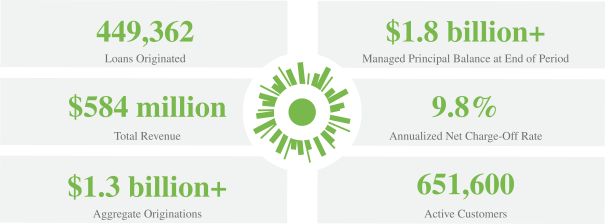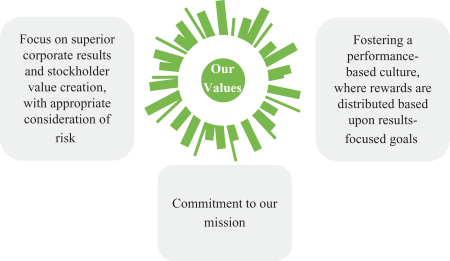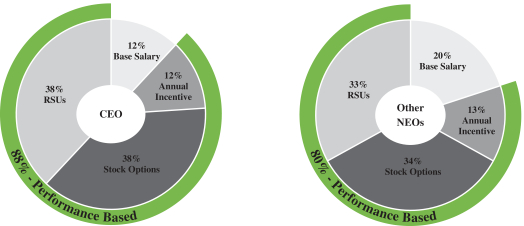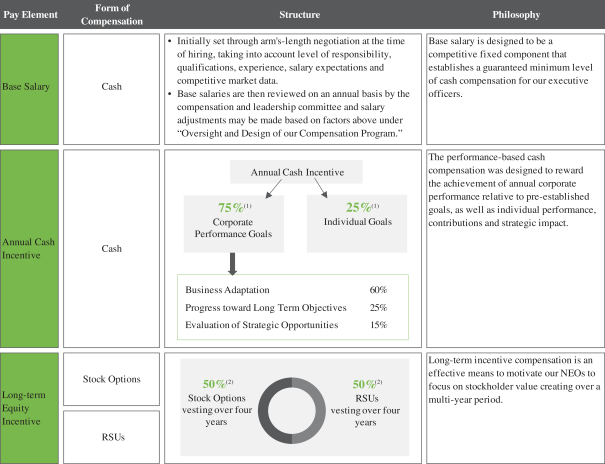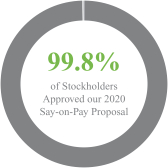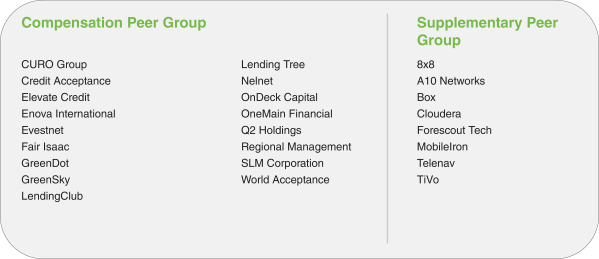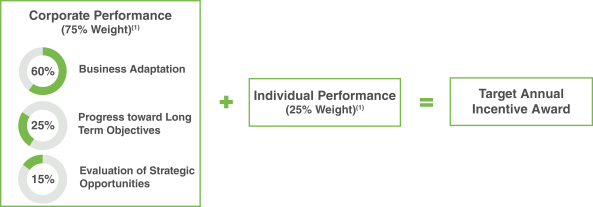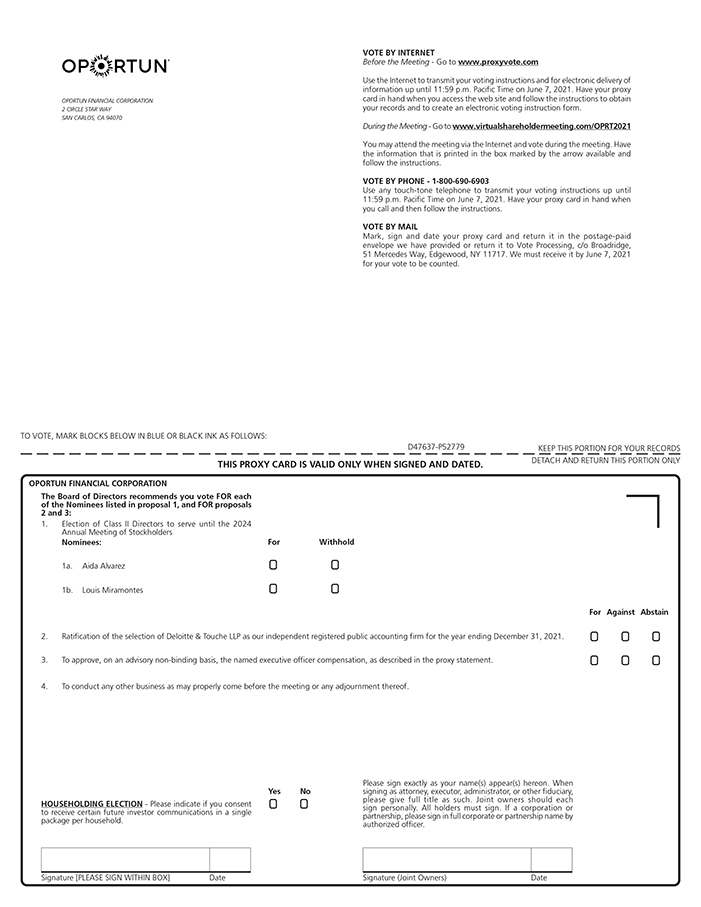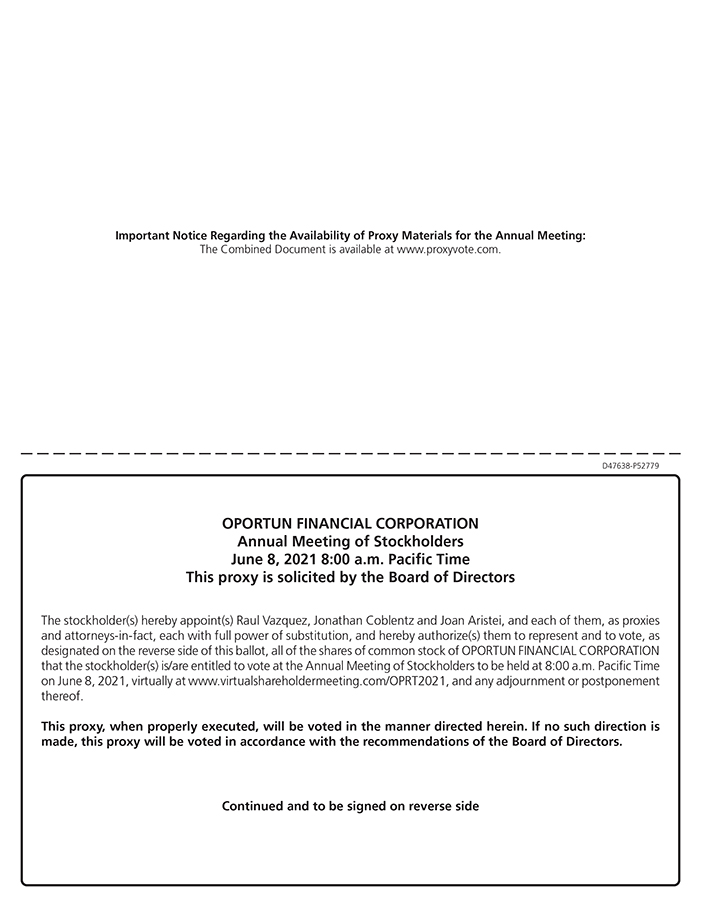Directors, Executive Officers, and Corporate Governance
Oportun is strongly committed to good corporate governance practices, which we established to serve the best interests of the
Company and its stockholders. These practices provide an important framework within which our board of directors and management can pursue our strategic objectives. Our board of directors is currently comprised of seven members, divided into three
classes with staggered three-year terms. Six of our seven directors are independent within the meaning of the independent director requirements of the Nasdaq Stock Market LLC (“Nasdaq”). At each annual meeting of stockholders, a class of
directors will be elected for a three-year term to succeed the same class whose term is then expiring.
Our board of
directors consists of a diverse group of highly qualified leaders in their respective fields. The board of directors and the nominating, governance and social responsibility committee believe the skills, qualities, attributes and experience of our
directors provide Oportun with business acumen and a diverse range of perspectives to engage each other and management to carefully address Oportun’s evolving needs and represent the best interests of Oportun stockholders.
Director Independence
The listing rules of Nasdaq generally require that a majority of the members of a listed company’s board of directors be
independent. In addition, the listing rules generally require that, subject to specified exceptions, each member of a listed company’s audit, compensation, and nominating and governance committees be independent.
In addition, audit committee members must also satisfy the independence criteria set forth in Rule 10A-3 under the Exchange Act. In order to be considered independent for purposes of Rule 10A-3, a member of an audit committee of a listed company may not, other than in his
or her capacity as a member of the audit committee, the board of directors, or any other board committee: accept, directly or indirectly, any consulting, advisory, or other compensatory fee from the listed company or any of its subsidiaries; or be
an affiliated person of the listed company or any of its subsidiaries. Additionally, compensation committee members must satisfy the independence criteria set forth in Rule 10C-1 under the Exchange Act. In
order to be considered independence for purposes of Rule 10C-1, a member of the compensation committee of a listed company may not, other than in his or her capacity as a member of the compensation committee,
the board of directors, or any other board committee: accept, directly or indirectly, any consulting, advisory, or other compensatory fee from the listed company or any of its subsidiaries; or be an affiliated person of the listed company or any of
its subsidiaries.
Our board of directors conducts an annual review of the independence of our directors. In its most
recent review, our board of directors determined that Ms. Alvarez, Ms. Barefoot, Mr. Miramontes, Mr. Pascarella, Mr. Strohm, and Mr. Williams, representing six of our seven directors, are “independent
directors” as defined under the applicable listing standards of Nasdaq and the applicable rules and regulations promulgated by the SEC. Our board of directors has also determined that all members of our audit and risk committee, compensation
and leadership committee, and nominating, governance and social responsibility committee are independent and satisfy the relevant SEC and Nasdaq independence requirements for such committees.
Family Relationships
There are no family relationships among any of our directors or executive officers.
Board Leadership Structure
Mr. Pascarella currently serves as our Lead Independent Director and we do not have a Chairman of our board of directors.
Although not required, we have separated the roles of our Chief Executive Officer (“CEO”) and Lead Independent Director. The CEO is responsible for the
day-to-day leadership, management, direction and performance of the Company, while the Lead Independent Director is responsible for coordinating the activities of the
independent directors, including:
| |
• |
|
work with the CEO to develop and approve an appropriate board meeting schedule; |
|
|
|
|

|
|
11 |












